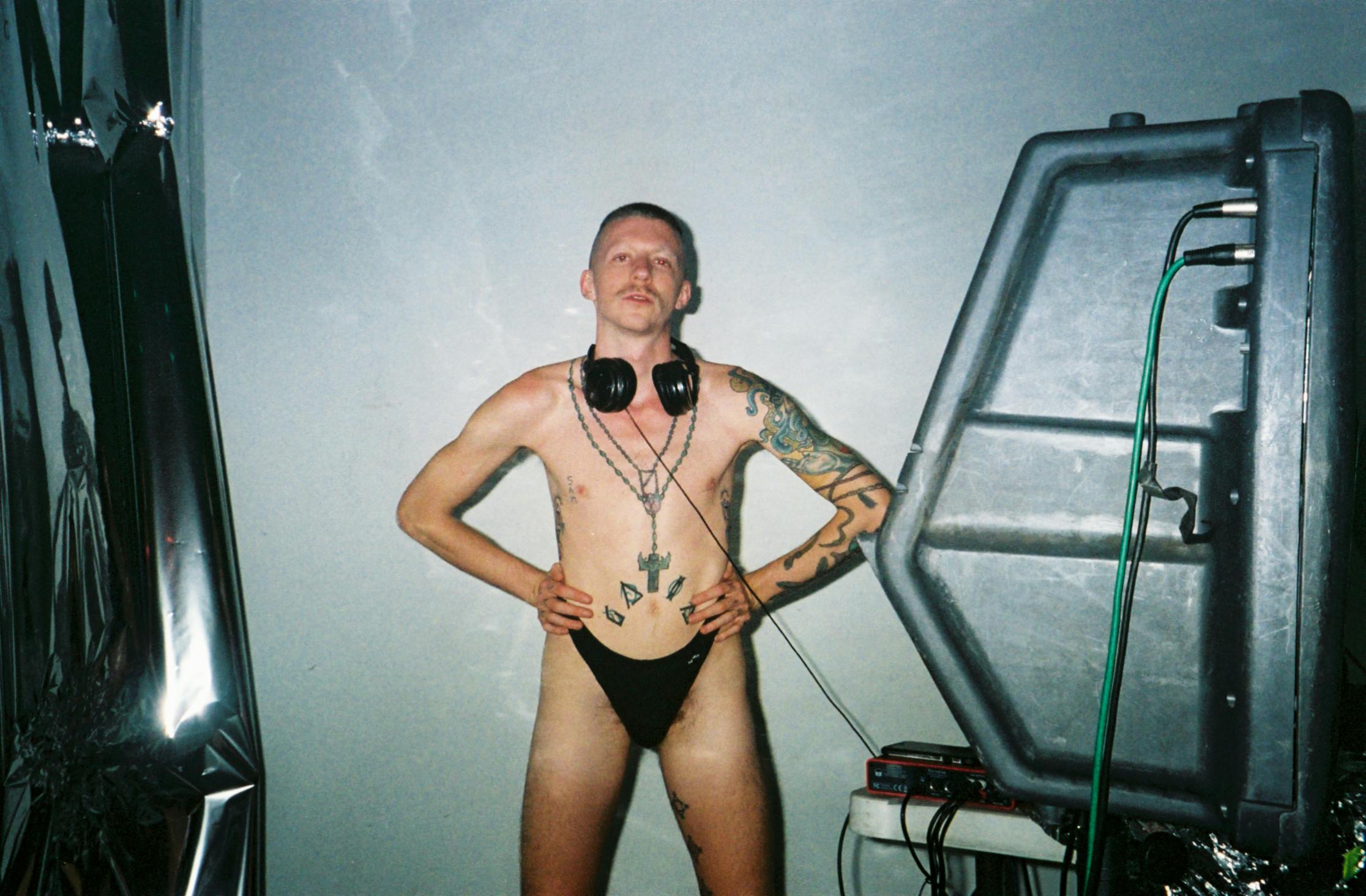
Dreamed As Medicine: Meditations on Gender and Spirit
by Alexis Penney
‘What an immense rip
In my life and in all things,
In order to be with my entire self,
In everything;
In order to never cease being,
with my entire self, in everything.’
Light and Shadows, Juan Ramón Jiménez
‘The Savior said, All nature, all formed things, all creatures exist in and with one another, and they will be resolved again into their own roots.
For the nature of matter is resolved into the roots of its own nature alone.’
The Gospel of Mary, 4:21-24
I think that I am nonbinary. I’m not sure exactly what this could mean. If gender is the way one is read and received, I don’t know who I could be if I only had to read and receive myself. I think that I might be nonbinary, because I only feel fully at ease around the queer, trans and gender non-conforming. When I’m being read and received by the mostly cis, I feel ill at ease, to say the least.
I recently received a major shamanic healing. I was possessed, had energetically wounded myself, and was living in a state of soul loss while overly corded with my mother — it was a lot. Shamans and medicine people all over the world teach that each person is guided by helping spirits whose primary intentions are to guide us in choosing well in our lives, reflecting back our personal power and divinity as we learn to embody our soul's unique purpose. For most of my life, I only knew my helping spirits as ghosts and nightmares, evidence of my insanity. During the session the shaman, Langston Khan, a queer person of color I know from New York, connected with the spirit whose central purpose is to help me develop my metaphysical health, who has been with me through all my gender confusion, drug abuse and wild, beautiful, pathological sex: ‘They have a very… nonbinary energy,’ he said. I felt very confirmed.
I think that I am nonbinary, though sometimes I feel like I might be too old for this, which is, of course, a trap I set for myself. Maybe I am afraid to commit to another public change when the language of identity no longer feels like it might end or save my life. I don’t want to take anything from those still fighting that fight. To live openly as transgender in this culture often requires a public commitment to an essential, crystalline self, because of the restrictions placed on transition and transgender people by the cis. You have to be ‘born this way’ or else you may just be surfing a ‘trend’. And gender dysphoria remains a disorder — a diagnosis — codified by suffering certain pathologies, for which transition is the medically mediated remedy. I don’t feel I need to do anything other than what I’m already doing to realize my truest self.
This new naming of my identity might be a part of that. I don’t suffer from dysphoria as I once did. I just want the way I’m read and received to create more space for ways of doing and being, not less. ‘Sometimes you don’t do things for their results, but to show others that they can be done,’ the spiritual teacher Anodea Judith once said. Transgender, non-binary, seem like liquid experiences, while to be cis is somehow to be solid, fixed, while also brittle and, maybe, fragile, like ice. We seem to be at a point of emergence, where a fluid notion of identity could breach the dam and bathe us all — could become like acid, dissolving the binary and all static notions of self. General public anxiety towards this societal transition seems to imply that this change will be a great loss, but what will we lose if we don’t take the risk? What are we already losing by forcing trans people to fight to exist?
I remember repeatedly being asked by my mother, with undisguised fear in her voice, if I was going to pursue transition, before I knew I had other options besides becoming a woman or staying whatever I was. We had both seen a 20/20 special featuring the trans activist Jazz Jennings, who was then around seven years old and being supported in her transition. Her story felt like a miracle and an anomaly. I didn’t know any out trans people then.
Around that time, during my first and only year of college, I attended an anthropology class, taught by a redhaired, cis-femme, German giant, well over six feet tall. ‘True or false: women have less capacity for athletic achievement than men?’ she asked, accent and tone: brusque, confrontational. False, I wanted to scream, though I couldn’t have told you why, then. True, murmured boys and girls alike in the classroom, taking her bait. ‘False!’ she cried, with anger and delight. ‘You have been conditioned to think so! In my country there is no disparity between women and men in athletic achievement. What you are taught affects what you feel and what you think you know!’ My mind was blown, or further melted. I felt powerfully confirmed, and also terrified; recalling all that I had been taught, wondering how that had shaped who I was. How would completing college further alter how I felt, what I thought I knew? On receiving the reading assignments, I dropped the class, dropped out of school entirely that semester. I never wanted to work a job that required a uniform. In fact, I refused. So why should I pursue a degree? Funny how that led to doing professional drag and sex work — slipping into new uniforms, albeit ones that felt a little less ‘them’ and a little more ‘me’.
*******
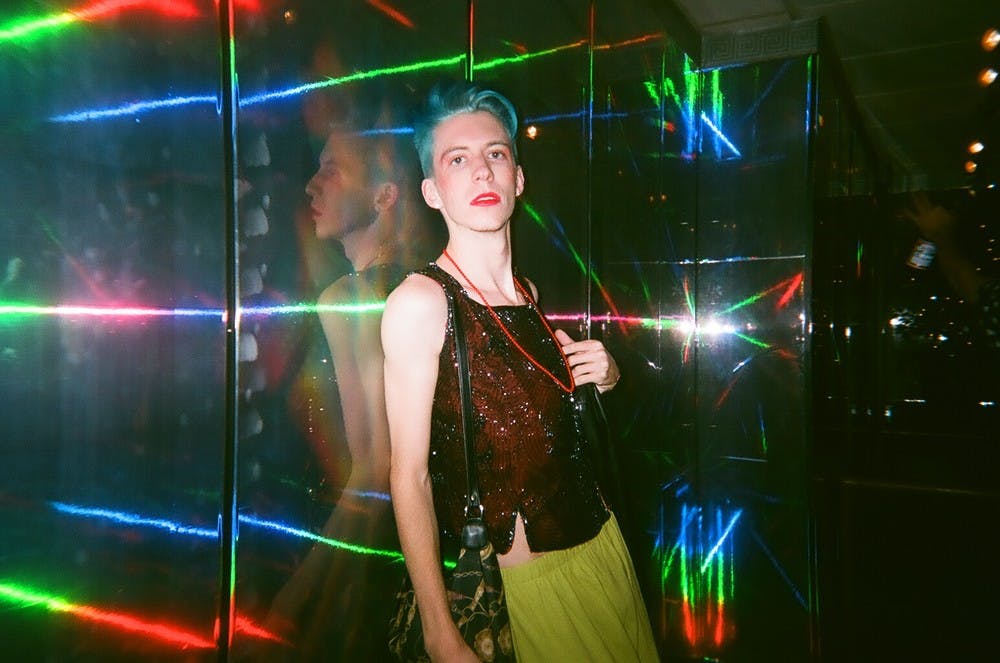
‘I lived as a woman for a few years.’ I often say this to people that I don’t know well, either as a confession, to garner trust or as a weapon, to prove that I have actually lived some difficult point I’m trying to make. But it’s not entirely accurate. I was asking for she/her pronouns from most friends, and from press, and performing professional drag several nights a week — but drag was also a job, and while my day-to-day presentation was certainly femme of center, I was still doing sex work as a ‘man’. Which was really the drag? For a long time I did not wear wigs, I lip synced with a shaved head, or a crewcut fade, and I never really shaved my legs. One time, I was on 6th Street, South of Market, a notorious stretch of downtown San Francisco, walking to an early drag show at The EndUp when a houseless addict of some kind came up to me on the corner: ‘You need to shave your fucking LEGS, girl! Please! Shave your legs!’ Even at the margins of normalcy, gender defines our possibilities.
The force of gender policing from straight, cis people and shade from queers, queens and gays has always struck me as strange. I’ve long hated the term ‘androgyny’, which felt lazy; ‘genderfuck’, obvious, like the time I was watching Juliette Lewis and her band the Licks, in Austin, Texas, and she grabbed me from on stage and snarled, ‘BOY IN A BRA!!!’ into the mic. Is that what I was?
Before Vicki Marlane, legendary transgender drag icon of Aunt Charlie’s Lounge, passed, at 76, she would look me up and down, in shredded tights and a slip, and purr, ‘Oh, you’re going for the punk look.’ That I definitely was. But after I took over her show, I felt compelled to step into a more highfemme look, started wearing lace-fronted wigs, contouring an illusion of breasts with makeup on my chest, cinched my waist with corsets and covered my hairy legs with layered tights. Was I attempting to pass as a woman, or just as a more legitimate queen? I could never really answer that. I was taking a lot of cues from Madonna. I loved how she had made a bra into a whole look, and I contoured my face like a white Grace Jones, I thought, but really I just felt myself evolving into a more fabulous version of myself. I wanted to embody and attract the attention and adulation some part of me knew I deserved and had never gotten. My friend Gina LaDivina, ‘the Italian Stallion’ herself, who has sizable breast implants and an unmistakably feminized face, but has never pursued transition beyond that, calls Gina an ‘ultra’ vs an ‘alter’ ego. That made a lot of sense. The dominant notion of identity, even within subcultures, where one is either ‘this’ or ‘that’, never both, just never seemed to apply to me. ‘Tat tvam asi’ or ‘Thou art that — the ancient Vedic proverb which states that every ‘Other’ is also a reflection of ‘my’ ‘self’; every separate person and thing contained within the totality of Brahman — feels relevant here. In the early Buddhist canon this is described as ‘Pratityasamutpada’, or as Buddhist and systems theorist Joanna Macy describes it, ‘mutual causality’. If we are not all ‘One’ we are at least, it’s taught, inextricably interconnected.
I was living in a punk/garagerock/noise-scene compound that sprawled lazily over two dilapidated mansions on Telegraph. I would do my face for each of the many evenings I spent out in the city while listening to noise bands practice; the distant booms and spectral groanings of their soundscapes evoked a warzone and so perfectly scored my attempts at reconciling the vying parts of myself on my face.
I read an article in those days, which were mostly just nights, while I was commuting back to Oakland over the Bay Bridge on the allnighter bus. I remember what I was wearing when I read it, because I’ll never forget the way it made me feel: black and gray flannel over a sports bra and a denim skirt, the black calfboot pumps I wore until the heels sparked when they touched the pavement. I was pretty drunk, but propped up by cocaine so I wouldn’t sleep past my stop. The issue of The New Yorker I was reading reported that researchers had succeeded in creating working ‘qubits’ for an infant ‘quantum computer’ (good drag name) that carried information not on the typical transistors, which necessitated a fixed position of either 0 or 1 to store and relay information, but in specially manufactured superconductors suspended in liquid. Though they could only hold the integrity of the thing for a series of nanoseconds, the process itself still worked, demonstrating that information could occupy multiple positions at once; the qubit could be 1, 0, and also 0 and 1, giving the processing power an exponential, theoretically infinite, increase.
At 24, and drunk, I didn’t necessarily understand the science (still don’t), or grasp the future psychosocial implications, but I didn’t need to know that I had changed. I suddenly knew what I was, or could be. I was quantum. An infinite imagining of selves could be superpositioned and entangled within me, and I could still be my coherent, individuated self. I could be Dr. Manhattan, a naked, blue god contemplating existence on the moon, and simultaneously his codependent, neglected wife; I could also be Alan Moore, the watcher and author, or vessel, for the Watchmen, transcribing my visioning and pop cultural indoctrination into coherent, worldshaping myth. I could be so many things — at once.
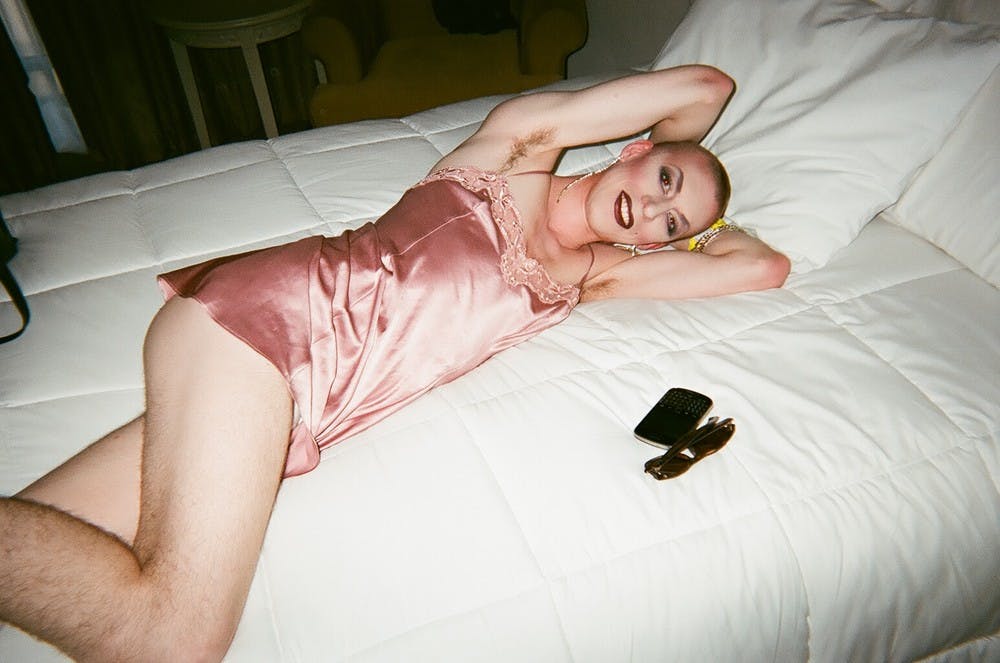
While living as something not quite a woman, I discovered that I was also god. I had taken too much molly and too many mushrooms, a combination that always yielded (unsurprisingly) intense but oft therapeutic — relatively, for a major drug user and addict —results. One minute I was tripping while sitting in my room, thinking I could see the atoms of solid things moving, the next, all that I knew fell away and I was lost among the stars. They were me. I was everything and nothing all at once, at some beginning or preexisting point. The Big Bang was an orgasmic, painful rupturing emanating from within and beyond myself. I created the universe. Watched myself birth everything that exists. I came back to Earth. I was Gotama the Buddha meditating under the tree looking back at my divine and also human self with a knowing smile. For a moment, I was Jesus on the cross. And then I was Diane Duane’s ‘fictional’ feline creatrix the Whisperer, the most tangible goddess I knew, and the palm trees outside my window were my/Her lion-headed consorts and they were singing along to a duet from the opera Samson and Delilah coming from the speakers. Eventually, I came down.
That was a before and after moment. I say this with no attempt at excessive gravity. Nothing has ever looked or felt the same since. You can't unknow yourself as having had a hand in creating the universe. Maybe that's why ecstasy and mysticism and similarly, gender variance and transition, or any forms of alternative cognitive experience, are so rigidly denied and policed. Everything I had formerly seen as dead, inanimate, separate, was suddenly alive and a part of myself. I literally was ‘that’ and it was all me. The comedown and ensuing depression and alienation nearly killed me. My mind was not ready to accept its divinity. My body was not ready to house those energies. Even my energy healer friend, a graduate from the Psychic Institute of Berkeley, told me, ‘These are the kinds of things people say right before they get institutionalized.’ Gee, thanks a lot.
*******
‘If you bring forth what is within you, what you bring forth will save you. If you don’t bring forth what is within you, what you don’t bring forth will destroy you.’
The Gospel of Thomas, 1:70
‘For if we are all interconnected parts of the body of the Goddess, then pain in any part, no matter how small or how far away, is in some measure felt by us all.’ Starhawk.
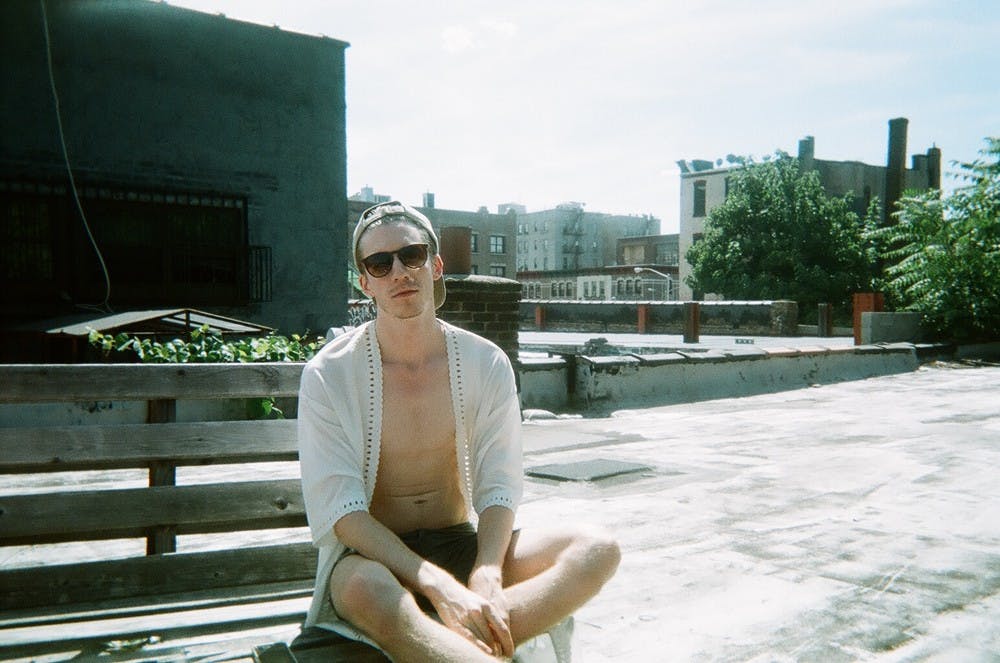
I survived. I shaved my head. I moved to New York. I got sober, mostly by doing yoga every day until I felt like I had sweated and cried and farted out all of the trauma and pain that had led me to escape into drugs in the first place. I’m not sure if I fully became the sort of ‘metaman’ that I am today, though, until the loss of my best friend and soulmate, Grant. His overdose drove home the reasons why I had left drugs behind. Moving into his room, taking stock of all of the stuff his family didn’t claim felt like an incarnate version of the emotional inventory I took in the aftermath of that loss.
Grant had always impressed and inspired me. He was one of the only cis men I ever felt truly comfortable with. We shared a bed, we cuddled on the couch, but things never got weird. He was so free and easy with his affection, his lanky but powerful presence, and his touch. He had been an Aquarius, like me, a gifted connector, even as he struggled with alienation and the need to disconnect. My grieving process centered on what parts of him I wanted to keep, and bring forward from within myself. It wasn’t so much a decision as a drive, maybe from beyond myself. My body and my experience of it were changing so fast, from the yoga and the adaptations mandated by living as an empath and energy worker in New York. I found that to step into the power afforded to men, those that are read and received as such, could actually be therapeutic. Most of my life I felt the need to scream at the top of my lungs to be heard, and even then, it didn’t feel like anybody listened. Suddenly, my whisper, even my silent look, held power, and as an ostensibly male white person, it was the selfimage I had of being silenced, marginalized and victimized that was asking to be sacrificed. Wearing high heels on the daily had been a power move: warpaint. Turns out both my psyche and my spine are much better served by wearing flats.
During my drug and femme years, my body had adapted as best it could — honestly, too well, considering that I was slowly, essentially killing myself. It felt like alcohol was holding me back in ways that were amenable to me as a femme: I had barely any visible body or facial hair, the sugar kept me kind of plump, I had a belly but also an ass, tiny jiggling tits (‘Well, you’re doing wonders for flat-chested drag queens!’ my mom quipped, when she saw me done up at my highest femme). I hardly ever got sick, almost as if I was keeping the necessary functions of my immune system so suppressed that it didn’t even react to the common cold, though chronic issues, like a six-month staph infection inside my nose, betrayed the truth.
Every morning I would wake up, almost always hungover in a way that made everything I saw throb and swim with life and pain, shuffle to my mirror, grab my dick and shake it at myself. It still somehow functioned, was still hard and aching every morning even after 12 hours tucked and taped away. Sometimes that felt like the realest part of me, by which I don’t mean gender essentialism — no matter how central my penis is to my self-conception, I will never fully agree to classification as male, too much gets annulled and left out — it’s just that it made me feel alive. Sex was a drug then, too, but it was also an ecstatic experience that would drag me back to myself in spite of all the ways I sought to escape. Dis-embodied sex just doesn’t work. At some point, whether when eating, shitting or fucking, we must all pay our dues to the body’s mysteries and its needs.
After seven years of blacking out many nights a week, sobriety was like a second puberty. The first three to six months were a hell of my own creation. I felt like Wolverine when he loses his healing factor — all the wounds I had been concealing were suddenly made manifest. I felt sick in my body, humiliated and enraged at myself. I had done all of this. But I am stubborn, when I finally make a choice. And so I knew, right away, that I would never go back to the way I was.
In addition to being non-binary, that helping spirit of mine is also a trickster. Maybe all of us gender dissidents are. Maybe that’s where we fit into the cosmology of things, the web of life. Langston related that this spirit was always present, even in the depths of my most self-destructive spiraling, because it was often at those lowest moments that I located the truest revelations of transcendence. And it’s true. It’s possible I never would have made it this far if I hadn’t chased sex and drugs and transformation like they were my religion and my fucking job. That spirit is serpentine in nature, as is my sexuality, as has been my life. As the snake winds to the left and right and sometimes coils in on itself in its ever questing forward, so has the process of my evolution, transformation and growth taken a winding path. My moon is in Scorpio, which I’ve always interpreted to be like a river; it is receptive, deep, it also tends to breach or leap its banks. I always felt like the booze was submerging me in a river of itself, a river of all the suffering of all the people who had ever drank — all the reasons they needed to swim those depths. Turns out I didn’t need to be submerged there. Turns out I feel pain deeply enough.
*******
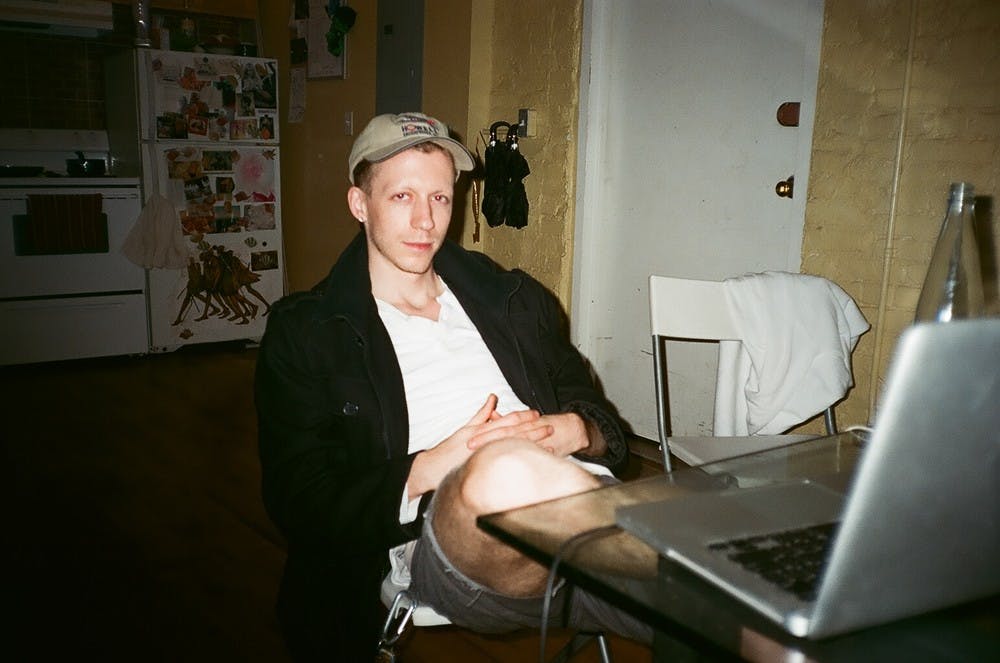
Sometimes, I lament the infinite adaptability of the human. None of the seers or shamans I work with are predicting human extinction. If these recipients of the oldest unbroken spiritual lineages on the planet teach that everything is right in the universe, no matter how it may seem, I am inclined to listen. But it appears certain that the next phase of this planetary transition will not be without an unprecedented amount of avoidable suffering and death. Avoidable if only we would listen to the spirits and bring forth the gifts that our culture is denying and destroying, those waiting inside of ourselves.
It might be helpful to stop framing this human experiment in anthropocentric terms. Over 7 billion people, their histories and effects, may be better seen through a wider lens, as we would view an asteroid collision or the collapse of a star. The same sweeping, cosmic forces move through each of us. The patterns might just be too grand for any individual or society to grasp. Human extinction wouldn’t be so much the tragedy for me, for death is part of life and in our ashes might rise the heirs of a society (of animals, insects, plants?) whose beauty we can’t yet fathom. What would be more tragic would be for all of us to continue to adapt to the current conditions of post-industrial capitalist life. One thousand more years of patriarchy? It’s possible. This makes our adaptability seem like a liability. If we can thrive despite such grim exploitation, repression and torture: maybe better we should die.
Growth hurts, sometimes really sucks, but it can also be such a thrill. When I was 14, all I wanted to be was a prostitute, a stripper, a secretary or a housewife. Throw addict muse to rock stars and mystic witch in there and that’s pretty much been my life, and I still may have so much more time. It’s been fabulous thus far, it’s also been incredibly hard. I’ve asked Langston many times, why me? I’m just a lower-middle-class white kid from Kansas, why did the yoga choose me? Why did Wicca and music and all these beautiful people come into my life? Why does Spirit seem to think me capable of so much? His most enduring response will always stick with me. ‘We are each dreamed into our culture as medicine.’ These gifts are a result of countless past lives, of aeons of guidance by Spirit and ancestors and the living intelligence of the earth. So, maybe a better question: why not me? Why not any of us? What are we losing by arresting transitions before they start? What kind of new world could we create, for each other and inside of each of us?
***
Photograph by Alexis Penney
